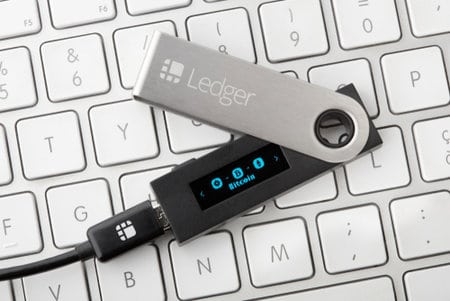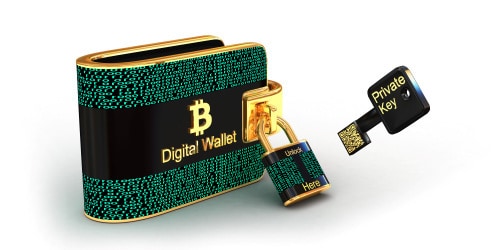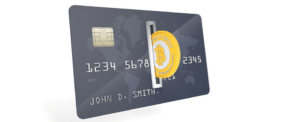Secure Storage
Millions of bitcoins have been lost over the years to hacking, fraud, and accidents. The costly lessons learnt from all these losses may be boiled down to one simple maxim: not your private keys, not your bitcoin.
This maxim gets to the heart of Bitcoin security. If you’re not in sole control of the (private keys for the) wallet which holds “your” coins, the coins can be taken from you at any time. This is why it’s never advisable to store your coins in exchange or web wallets; as those services control the private keys.
Storing coins in a personal wallet on your computer is far more secure but still not foolproof. If your device is stolen or infected by malware, the private keys and passwords to your Bitcoin wallet can be lost.
Physical vs. Cyber Security
The theft of a device containing a private key is obvious and simple to prevent through the same physical security measures we use to protect our other valuables. Malware or hacking present a far more dangerous threat however. Cyber attacks are frequently undetectable and far more complex attacks; information security expertise is required to mount an effective defense.
Do you know for a certainty that the device you’re using to read this post is free from malware? Could you make the device invulnerable to malware while still connecting to the internet and other devices?
Hot vs. Cold Wallets
Before the invention of hardware wallets, the only way to ensure a private key’s security against cyber attack was to generate it on an entirely offline (“air gapped”) computer, then store the key offline. This is known as “cold storage,” whereas wallets which connect to the internet as referred to as “hot.” Paper wallets are a common cold storage solution.
An obvious problem with cold storage is that Bitcoin wallets need to be online to spend coins. While you can receive coins to a pre-generated cold address, eventually these coins must be spent. It then becomes necessary to import the private key into a hot wallet, compromising its security. Another problem is that any change will be returned to a hot wallet address of which the cold paper is totally unaware. A further problem is the difficulty of maintaining an inviolate air gap, as file transfers between on- and offline machines defeat this purpose.
In short, paper wallets are extremely problematic for non-experts to generate and use in a secure manner. Even for experts, the inconvenience and time costs are considerable. This is where hardware wallets enter the picture.
Hardware Wallets (HWs)
HWs greatly improve security for non-expert users, without requiring any expert knowledge or imposing any significant inconvenience. For this reason, HWs are widely recommended as the optimal cryptocurrency security solution for all levels of users, except perhaps for dedicated experts.
These devices function as mini air gapped computers. Their primary purpose is the secure, offline generation and storage of private keys. HWs combine the security of cold wallets with the convenience of hot wallets.
During initialization, hardware wallets generate a random private key using their internal electronics. This private key is then stored inside the hardware wallet in an entirely inaccessible way. The key is thus kept offline, as with a cold wallet, even when the HW is plugged into an internet-connected device.
Private keys are also stored secured securely, without ever being exposed to other devices even during direct usage. One could plug a HW into a device known to be infected with coin-stealing malware and still send bitcoins in absolute safety. Beyond connecting the HW to the device and entering one’s unique PIN (using a randomized visual process which defeats key loggers), no further user input is required. This makes for a convenient experience, comparable to regular hot wallets.
For the technically-minded, here’s how spending transactions are processed by HWs:
All spending transactions must be authorized by a signature from the controlling private key. HWs achieve this function without ever exposing the private key. When coins are spent, the relevant transaction data is sent to the HW to be signed. The signed transaction is then returned to the device, to be broadcast to the blockchain. The private key is therefore never revealed to the device.
Recommend Hardware Wallets

Ledger offers 2 different HWs, namely the Ledger Nano S (~$95) and Ledger Blue (~$270). Ledger HWs support more altcoins than Trezor – currently around 29 plus most ICO tokens – and Ledger is usually first to support new fork coins. One drawback is that the main chips used in their devices are proprietary, albeit used in many secure ID and banking devices.

The Trezor One (~$100) is the original hardware wallet, released by SatoshiLabs in mid-2014. Four years later (at the time of writing) it remains an extremely popular and well-regarded product. A new model with a color touchscreen, the Trezor T (~$175), has since been released. All of these products use open source software and hardware; the same security model as Bitcoin itself. Trezor wallets support Bitcoin and (currently) about 15 altcoins, as well as most ICO tokens.
Hardware Wallet FAQs
- Can I use a USB stick or external drive as a hardware wallet?
No, these storage devices lack the specialized architecture for random private key generation and offline storage.
- What happens if the hardware wallet is lost or destroyed?
During the initialization of the HW, a backup seed phrase is displayed onscreen. This seed phrase may be entered into any compatible wallet – hardware or otherwise – to restore the user’s entire balance.
The seed phrase is essentially the private key converted to a string of common English words. These words must be accurately recorded and securely stored. They should be stored only in some durable physical form which can resist time and the elements. Stamped or etched stainless steel is a good solution.
- What if the hardware wallet is stolen?
Hardware wallets require you to set a unique PIN. Without this PIN (or your seed phrase), the thief will be unable to claim your coins. To prevent brute force attacks against the PIN, HWs implement either a multiplying time delay between incorrect inputs (Trezor) or a complete lockout after a number of consecutive failed attempts (Ledger).
- Are there any known attacks against hardware wallets?
Hardware wallets which get physically captured by technically-proficient thieves may be hacked. Few individuals are technically capable of such an attack and even fewer of those are malicious. Standard physical security methods can prevent this attack.
- Should I buy a hardware wallet from eBay or similar sites?
No, you should only buy HWs from the original manufacturers. There have been cases where people have been sent pre-initialized or otherwise fraudulent hardware wallets by resellers.



